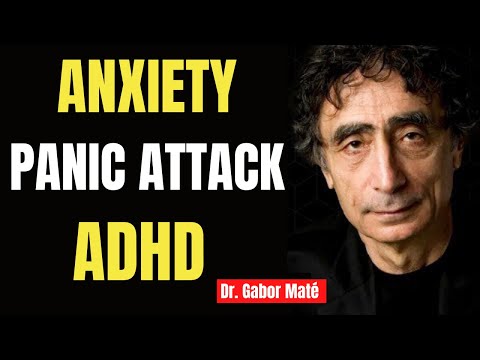The commercialized approach of medicating children with ADHD to conform to societal expectations is problematic, and a holistic approach that addresses family stress and meets a child's needs is more beneficial
Questions to inspire discussion
-
What is ADHD?
—ADHD is a condition characterized by difficulty paying attention, poor impulse control, and hyperactivity.
-
Is ADHD heritable?
—No, ADHD is not a heritable disease, but rather a condition.
-
What coping mechanisms can manage ADHD?
—ADHD can be managed through various coping mechanisms.
-
What are the negative side effects of ADHD medication?
—ADHD medication can have negative side effects.
-
How does neglecting a child affect their development?
—Neglecting a child can lead to anxiety and a sense of helplessness.
Key insights
- 🧠 Dr. Gabor Maté questions the meaning and understanding of ADHD, emphasizing that it is a real condition but raising the need for a deeper understanding of its implications.
- 🧠 "What does the brain do when you're stuck like that? It gets distracted, it tunes out, it turns out you want to do other things, think about other things."
- 🧠 "The human brain develops under the impact of the environment, with the most salient feature being the relationship with the parents."
- 🧠 "You've got here a very sensitive child that sensitive child is picking up on all the Vibes energies and stresses in your family."
- 🩺 "If you came to me for any problem, my first impulse would never be to write your prescription."
- 💡 Diagnoses like ADHD do not provide a comprehensive explanation for symptoms, as they merely describe the observed behaviors without addressing the underlying causes.
- 🌍 ADHD and anxiety are not diseases, but rather a natural survival response to an environment where children's distress is not responded to.
- 🧒 "If we meet the child's needs, they're going to mature out of that helpless state with a sense of self-regulation and calm confidence in their own capacity."
Clips
-
00:00 👨⚕️ ADHD is a real condition, but the commercialized approach of medicating children to conform to societal expectations is problematic.
-
01:02 🧠 ADHD is not heritable, but rather a condition characterized by difficulty paying attention, poor impulse control, and hyperactivity, which can be managed through coping mechanisms.
- ADHD is not a heritable disease, but rather a condition characterized by difficulty paying attention, poor impulse control, and hyperactivity, and it can be managed through various coping mechanisms.
- When faced with limited options, the brain gets distracted and seeks to do other things or think about other things.
-
02:42 🧠 Children with ADHD are often medicated because their natural energy and curiosity clashes with the unnatural and boring environment of the classroom, and their brain development is heavily influenced by the stress and emotional availability of their parents.
-
04:18 👶 Sensitive children diagnosed with ADHD are often just coping with family stress and can benefit from a holistic approach rather than medication.
-
05:25 👨⚕️ The doctor, who has ADHD, shares his personal experience with medication, highlighting its initial benefits but also its limitations and negative side effects.
- The speaker, a doctor with ADHD, took Ritalin before being diagnosed because of poor impulse control, but as a doctor, he would prioritize talking to patients rather than immediately prescribing medication.
- The speaker discusses his personal experience with ADHD medication, stating that while it initially provided relief and increased focus, it also had negative side effects and ultimately believes that relying on medication is a limitation of the spirit and medical education.
-
07:50 👨⚕️ Doctors often overlook the role of trauma in mental health conditions like ADHD, depression, addiction, and autoimmune illnesses, instead attributing them solely to the diagnosis.
-
09:12 😤 Anxiety is not a disease, but a natural response to the world, and people give themselves anxiety by how they perceive and interpret the world around them.
-
10:38 🧠 ADHD, anxiety, and panic attacks are normal responses to childhood neglect, but can be prevented by providing love, support, and meeting a child's needs.
- ADHD, anxiety, and panic attacks are not diseases, but rather normal responses to a lack of care and support in childhood, leading to built-in panic circuits and increased diagnoses in children.
- When a child is crying, picking them up and showing them love and support teaches them that the world is safe and they don't have to be anxious, helping them develop into a mature adult who knows how to take care of themselves.
- Meeting a child's needs allows them to mature with self-regulation and confidence, while neglecting them can lead to anxiety and a sense of helplessness.
-------------------------------------
Duration: 0:14:27
WatchUrl: https://www.youtube.com/watch?v=Jx7ZYvNhPnI
Publication Date: 2023-08-31T18:59:45Z
-------------------------------------

